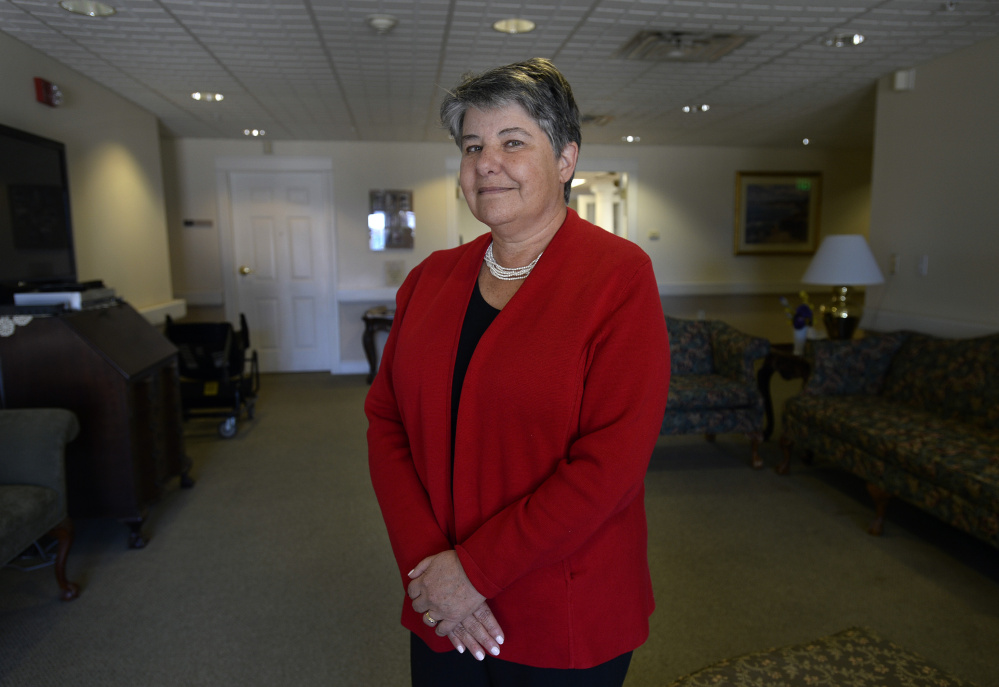Sometimes a friend or family member isn’t well-equipped to handle an elderly person’s finances, medical care and other important matters. That’s where a licensed guardian and fiduciary comes in. Often referred to their clients by attorneys, professional guardians such as Teri McRae seek to protect the health and welfare of their clients while allowing them to live their lives to the fullest. We talked with McRae, owner of McRae & Associates in Portland, about her unusual profession.
Q: What do professional guardians do for their clients?
A: There’s a huge range. Our connection with the families runs the gamut from managing finances to helping with doctors, managing care, advocacy, handholding, parenting, selling and buying assets – whatever they need. I pay bills, go over investments. I have power of attorney over some of my clients. I act as trustee for some. Most people have no idea that these services are available, how to access them and the support we can provide.
Q: What sort of training is required?
A: The licensing requirements to become a guardian vary from state to state. There is also the National Guardianship Association, which administers a 100-question test you have to pass to become certified. I would say that 85 percent of the questions are about judgment. It’s not facts and figures. I don’t think it’s a job you can do right out of school. A background in social work, caregiving and finance is helpful. And empathy. You get a lot of phone calls on the weekend, and you have to be willing to take those calls. You also need to have some experience in life to draw on, if nothing else.
Q: What is your professional background?
A: I have 35 years of business, finance and probate court experience. I grew up in Denver, earned a degree in economics from Brandeis University and a master’s in finance from MIT Sloan School (of Management). Prior to starting McRae & Associates, I was the Cumberland County registrar of probate.
Q: How do your clients find you?
A: Usually it’s a lawyer who refers me to a client. And then I meet with them, and they decide if they want to hire me. You’re not going to pick someone out of the phone book to be in charge of your money. It’s one of those businesses where reputation is everything. When you’re guardian for someone or you have health care power of attorney, you’re literally making life-or-death decisions.
Q: Under what circumstances would someone retain your services?
A: I get involved when people don’t have family, or when family members don’t get along. I have one client who doesn’t trust her loved ones to follow the terms of her living will. Sometimes it’s better to have a professional involved who is looking out for you. At the end of the day, I have to focus on you, my client. I only care about you. Sometimes family members think they are entitled to take something from you. If they need to be told “no,” it’s better that they hear it from me, and get mad at me. I have to be willing to take the heat. For some people, it’s just knowing that there’s someone they can call, even if it’s just one person.
Q: What are your guiding principals?
A: I prefer to let my clients make their own choices whenever possible. I try to give them as much control as I can. You want to help people stay who they want to be for as long as they can be. Because I’m a stranger butting into people’s lives. Some people don’t want any help. I had one client who wouldn’t even look at me. So I managed his care without him knowing it. I never saw him. You’ll get people who don’t want to take a shower, and the family will say, “Get him to take a shower.” And I will say, “How am I going to get him to do that?” I’m all for cleanliness, but dignity and respect are more important. It’s a real art to balance someone’s financial health, physical health and emotional health. It takes judgment. It’s like the judge I used to work for sits on my shoulder, and I don’t ever want to hear him say, “You did what?”
Copy the Story LinkSend questions/comments to the editors.




Success. Please wait for the page to reload. If the page does not reload within 5 seconds, please refresh the page.
Enter your email and password to access comments.
Hi, to comment on stories you must . This profile is in addition to your subscription and website login.
Already have a commenting profile? .
Invalid username/password.
Please check your email to confirm and complete your registration.
Only subscribers are eligible to post comments. Please subscribe or login first for digital access. Here’s why.
Use the form below to reset your password. When you've submitted your account email, we will send an email with a reset code.